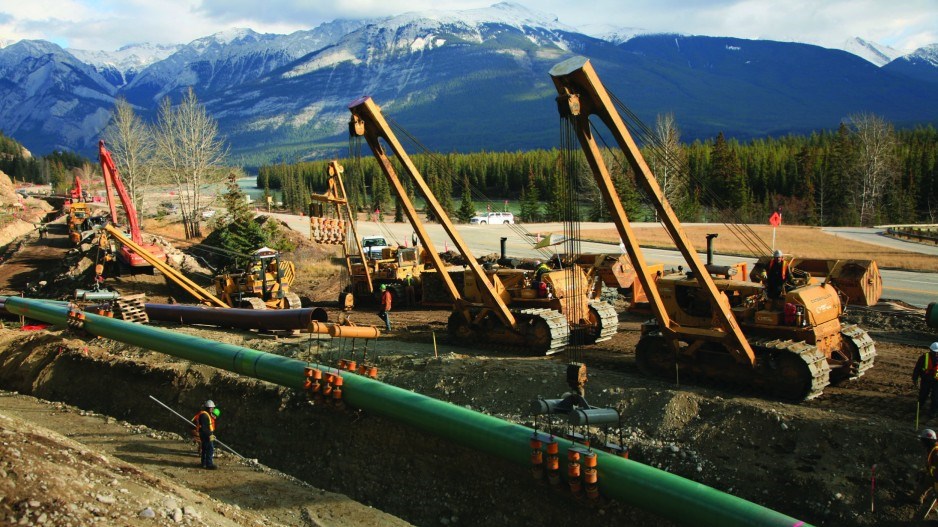When the Federal Court of Appeal quashed the approval of the $7.4 billion Trans Mountain pipeline expansion, it left the door open for a potentially speedy remedy.
But it may have also opened other doors that could add yet more hurdles, delays and controversy.
Because the appeal court ruled a National Energy Board (NEB) environmental review was flawed, it may have cleared the way for the B.C. government to require that a provincial environmental review be redone as well, said BC Green Party Leader Andrew Weaver.
“The provincial government should terminate the equivalency agreement signed by the previous administration. Now is the time to use the tools at our disposal to ensure our environment is protected from the risks of an oil spill.”
B.C.’s environment ministry said in an email that it is reviewing the decision and considering the implications and options connected with the provincial assessment of the project.
Restarting that assessment could reignite a trade war between B.C. and Alberta, which earlier this year passed legislation allowing it to restrict the flow of oil and gas from Alberta to B.C.
Ottawa has at least two options if it wants the expansion back on track. It can obey the appeal court, which means going back to the drawing board to address the two flaws identified in the ruling. Or it can appeal the ruling to the Supreme Court of Canada, as Alberta Premier Rachel Notley has demanded.
Senator Doug Black thinks the Trudeau government should exercise both options and add a third by enacting Bill S-245, the Trans Mountain Pipeline Project Act, which is languishing on the order paper in the House of Commons.
Black’s bill would use a section of the Constitution Act to declare the pipeline expansion “for the general advantage of Canada.” It would effectively expropriate the pipeline corridor, allowing the federal government to ignore provincial and municipal laws.
In the meantime, Black thinks the Trudeau government should order the NEB to issue interim permits to allow construction to proceed while it addresses the appeal court remedies.
The federal court told the government what, in its opinion, needs to be done,” Black said. “I’m saying, ‘Do it, do it fast and then move ahead.’”
The appeal court’s ruling suggested that, because the First Nations concerns were “specific and focused,” Ottawa could meet the court’s requirements for proper dialogue in as little as four months.
Richard Masson, an executive fellow at the University of Calgary’s School of Public Policy, said addressing concerns about the effects of oil tanker traffic on killer whales could be addressed relatively quickly, because Transport Canada has already done much of the work. Masson said Canada could simply add a chapter on marine traffic impacts to the NEB report.
But he expects negotiating with First Nations could take six months to a year.
Even if the Trudeau government could resolve the environmental and First Nations issues in a way that satisfies the court, Black said the government needs to appeal the decision to the Supreme Court to get clarity on what constitutes proper dialogue and consultation with First Nations.
As for Black’s nuclear option – S-245 – he thinks there’s even more reason now to push that button than when he first drafted the bill. When the Senate approved the bill, a private enterprise – Kinder Morgan Canada (TSX:KML) –was planning to finance the $7.4 billion pipeline twinning project. Now, the Canadian government owns it.
Robin Junger, an expert in Aboriginal and environmental law for McMillan LLP, said Black’s bill is unnecessarily heavy-handed.
“There are a range of legislative options, and one doesn’t have to go that far,” he said.
The government could amend the way the NEB legislation applies to the project, for example, or set out a new framework for Aboriginal engagement and accommodation.
“A legislative response needn’t necessarily be a major hammer,” Junger said.
Even if Ottawa can satisfy the appeal court and again approve the expansion, it likely won’t put an end to the legal challenges, he said.
“If, in eight months, cabinet re-approves something, I’m sure there’s a court case coming right after that. Construction may be able to ramp up again, but there will still be overhanging uncertainty for a period of time until it’s constructed.”
Meanwhile, the pipeline project will cost the Canadian government more for every month it is delayed.
Not only are capital costs likely to increase, but the $1.5 billion already spent on the project is now an expense for Ottawa in the form of interest charges, Masson said.
He calculates those charges to be about $150 million a year. Ottawa is also forgoing roughly $75 million per month in future revenue for every month the operation of the expanded pipeline is delayed.
On the other hand, Canada now owns a pipeline that is generating revenue. Kinder Morgan Canada took in $342 million during the first half of the year from its pipeline and terminals and netted a $72 million profit.
Not all of those profits would have come from the Trans Mountain pipeline, however.
See related Q&A with federal Fisheries and Oceans Minister Jonathan Wilkinson.




